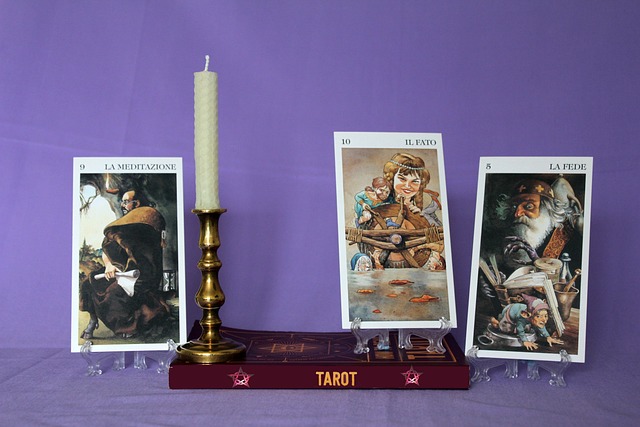
Symbolizing stability and material security, the Four of Pentacles is a card that suggests that we have a stable base in our life and are secure in our material possessions. But, there are also negative meanings that could cause harm to our lives. Its meanings could range from obsessiveness to possessiveness or hoarding. It can also signify a lack or fear of losing something, depending on your situation.
The Four of Pentacles may be a sign of fear that can hinder your ability to move forward in your life. This card also suggests a fear of losing something, which could be money or a loved one. This card suggests that you should evaluate your financial situation prior to embarking on a new venture. It is also important for you to learn to be generous. While you might be worried that you won't meet your financial goals due to fear, this card encourages and empowers you to review your situation and take steps if necessary.
The Four of Pentacles was strongly associated to Capricorn, who is the Zodiac’s traditional business person. Capricorn is often associated with Saturn, which is associated with financial stability and practicality. It is also associated to insecurity which can cause even the most happy relationships to slowly fall apart. The Four of Pentacles can indicate that you're too concerned about possessions and money and not enough in other areas of your life. This card warns you against making mistakes that could lead to disaster. Shady financial schemes could make you vulnerable. It is also important to take care of your physical and spiritual health. Having a strong and stable financial base is important, but if you are not in good physical and spiritual health, you will find it difficult to achieve the financial security you need.
The Four of Pentacles can also be a symbol of insecurity. This can lead to us being stingy or protective of our material possessions. People who worry about their finances often tend to be more conservative and save for the big stuff. This card does not mean that we should neglect other aspects of our lives such as our relationships and mental health. It is important for us to be honest about what we want and to set aside time for things that bring us happiness.

The Four of Pentacles card could also signify a lack of acceptance by others. This can prevent you from building relationships. Your knee problems could also indicate that your ability to get the exercise you need is not possible. The Four of Pentacles card from the Tarot can also indicate that you may be unhappy with your relationships, and could even be possessive or clingy. This can be harmful, especially if you are dating someone who doesn't share your values. The Four of Pentacles warns against entering into a relationship that isn't right for you.
FAQ
What are collection hobbies?
Books, movies music, comics and video games are some of the most popular collections.
You can also collect stamps, coins and cars as well as dolls, action figures, figurines, art supplies, kitchen utensils, jewelry and watches as well...
I think you get it.
Which hobbies are most in demand right now?
Popularity is not always a good thing. It is often used as an excuse for mediocrity. Most people don’t have the time to pursue any hobbies they desire. They are always too busy to earn a living. What should you do when you don't have much time? You could open a business.
However, this isn't easy. There are many obstacles to overcome before you can turn your idea into reality.
So if you're looking for something more exciting than running a business, you should consider pursuing a hobby.
Hobbies do not have to be limited to creative pursuits. There are many hobbies. These include:
-
Gardening
-
Cooking
-
Photography
-
Reading
Why do we require hobbies?
Hobbies are an important part of our lives because they give us time to relax, unwind, think creatively, exercise, socialize and enjoy ourselves. These hobbies offer us the opportunity to learn new skills, develop valuable lifelong interests, and provide opportunities for us to do both.
Hobbies are a way to find meaning and purpose.
These are a great way for you to have some free time, even if there isn't much else.
They're also fun!
If you don't find time for hobbies, it's likely that you don't have enough time for any other activities.
So take a look at all the options available to you. Start a hobby today, if you don’t have one already!
Statistics
- A new survey by Pew Research Center of teens ages 13 to 17 finds that 36% of girls feel tense or nervous about their day every day; 23% of boys say the same. (pewresearch.org)
- The intensity of the dialogue partners' bond at the end of the forty-five-minute vulnerability interaction was rated as closer than the closest relationship in the lives of 30 percent of similar students. (time.com)
- Studies show that just six minutes of reading can reduce stress levels by 60 percent. (oberlo.com)
- In comparison, men in the “no humor” condition were refused 84.6% of the time and were only accepted 15.4% of the time. (time.com)
- This 100% accurate personality-analyzing hobby quiz discovers your passion based on your characteristics. (quizexpo.com)
External Links
How To
How to start gardening
Gardening is one among the oldest forms. It requires patience, persistence and determination. First, choose a place where you would like to grow food. This could be on a large piece of land or in your backyard. Next, select the kind of plants that are most appealing to you. Do you prefer vegetables or flowers? Some people like to grow herbs and others enjoy raising livestock, such as rabbits. Before you decide on the type of crops you want to plant, it is important to consider the space available. If you live in a region that experiences cold winters then it is possible to grow fruits and berries.
Once you have selected the plants you wish to plant, you should prepare your soil. It is vital that your soil is prepared properly to determine whether or not your plants will thrive. A good soil has organic matter which helps to feed the roots of your plants. Organic matter is made up of leaves, twigs grass clippings, manure and compost. After you have prepared the soil, you will need to add nutrients. Depending on the type of plants you plan to grow, you may need different amounts of nitrogen, phosphorus, potassium, calcium, magnesium, boron, zinc, copper, manganese, iron, molybdenum, chlorine, sulfur, sodium, and so on. A fertilizer calculator online can help you determine these values. There are many fertilizers available so be sure to know what you are purchasing.
After you have prepared your soil, and added the correct nutrients, you will need to wait until your seed germinates. The process typically takes 2 to 3 weeks depending on the weather conditions and temperature in your area. After seeds have sprouted, water them every day. Problems can arise if you water your plants too frequently or too little. Avoid overwatering your plants. Overwatering can result in root rot, fungal diseases, and even death. When watering your plants, remember that most plants require less water during the warm summer months than in winter. Some plants must be dried out after being watered. Tomatoes, for example, need to be kept moist but not too wet. Soggy soil is not a good choice for tomatoes. After flowers are finished, plants must go dormant. Dormancy occurs when plants stop producing any new growth and start to store energy for the next harvest. Dormancy means that the plant stops communicating with its roots about producing food. Throughout this period, the plant stores energy. Plants will soon die if they are exposed to too much or too cold temperatures.
If you live in an urban environment, you may find yourself limited in the kinds of plants that you can grow. Urban areas tend to contain concrete sidewalks, roads, buildings, and parking lots that block sunlight from reaching the ground. Concrete absorbs light and prevents soil below from getting sufficient sun exposure. Many plants can't survive in urban environments due to lack of sunlight. Fortunately, there are still many plants that can thrive in an urban environment. Many trees, shrubs, and perennials can adapt to city living. In addition, many annuals can be grown indoors in containers. Container gardens allow you to bring fresh greenery into your home year-round regardless of the weather outside.
Now that you have decided where to place your garden, chosen what you will grow, and prepared your soil, you are ready to plant!